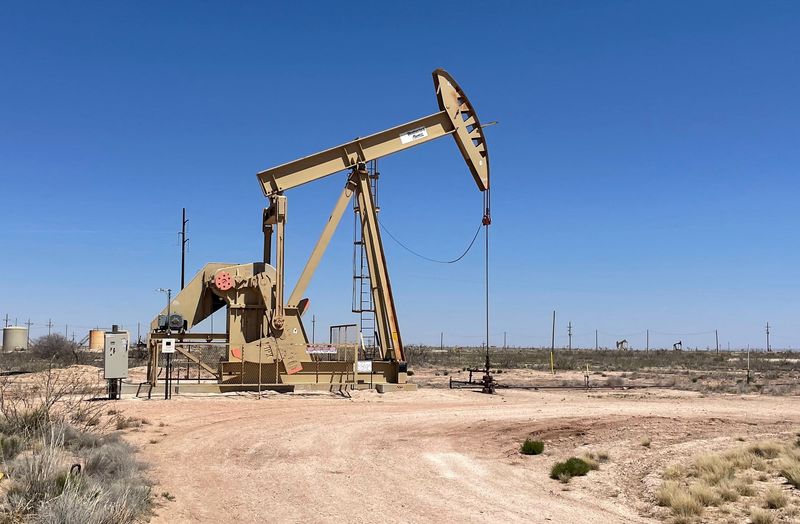By Arathy Somasekhar
HOUSTON (Reuters) -Oil prices fell more than $1 on Thursday as global supply appeared largely unaffected by worries about a broader crisis in the Middle East following the killing of a Hamas leader in Iran, and as investors focused again on concerns about demand.
Global benchmark futures closed $1.32, or 1.6%, lower at $79.52 a barrel, while U.S. West Texas Intermediate crude fell $1.60, or 2.1%, to $76.31.
In the previous session, the most active contracts on both benchmarks rose about 4% as concerns about a wider conflict in the Middle East were fueled by the assassination of Hamas leader Ismail Haniyeh in the Iranian capital Tehran, shortly after Hezbollah’s top military commander in Beirut.
“I think there’s a growing realization that we haven’t seen any real supply disruption. The market is once again focusing on geopolitical issues and looking at global crude oil demand,” said Dennis Kissler, senior vice president of trading at BOK Financial. .
However, investors were closely monitoring any disruptions, especially on oil shipping routes, analysts said. Iran-linked Houthi militants have attacked ships transiting the Red Sea, forcing tankers to take longer alternate routes.
A meeting of top OPEC+ ministers kept oil production policy unchanged, including a plan to phase out one layer of production cuts from October.
OPEC+ policy, agreed in June, calls on some members to phase out cuts of 2.2 million barrels per day from October 2024 to September 2025. The group also agreed to reverse previous cuts of 3. 66 million barrels per day until the end of 2025.
U.S. government data showed on Wednesday that robust export demand pushed weekly oil inventories down by 3.4 million barrels.
Longer term, investors are not confident in Chinese demand, said Phillip Nova analyst Priyanka Sachdeva, adding that these concerns will limit the upward trend in oil prices.

A private sector survey on Thursday showed that Chinese manufacturing activity contracted in July for the first time in nine months as new orders fell. On Wednesday, Chinese official figures showed that manufacturing activity fell to the lowest level in five months in July.
Elsewhere, the Bank of England cut interest rates from a 16-year high on Thursday. On Wednesday, Fed Chairman Jerome Powell said US interest rates could be cut as early as September. Lower interest rates lower the cost of borrowing, which can stimulate economic activity and demand for oil.


